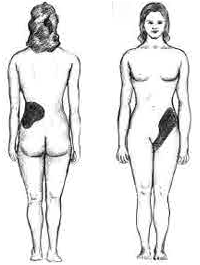
Photo from wikipedia
PURPOSE To systematically review the recent alternative medical interventions on renal colic pain and compare their efficiency with conventional treatments. MATERIALS AND METHODS This was a systematic review and network… Click to show full abstract
PURPOSE To systematically review the recent alternative medical interventions on renal colic pain and compare their efficiency with conventional treatments. MATERIALS AND METHODS This was a systematic review and network meta-analysis (NMA) study, based on the PRISMA guidelines on online databases of PubMed, Scopus, and web of science. We quarried these databases with relevant keywords for clinical trial studies that aimed at reducing renal colic pain in patients refereeing to the ED from after January 2011 to February 2022. Randomized clinical trials that used the Visual Analogue Scale (VAS) for assessment of renal colic pain before and after medical interventions in adult patients were included in this study. NMA was conducted based on the continuous values of the mean difference of the pain after 30 and 60 minutes of the medication administration. RESULTS Twenty-four studies that were meeting the inclusion criteria were included in our review with 2724 adult participants who were mostly male. Study arms included conventional medications (NSAID, Opioid, paracetamol), ketamine, MgSo4, desmopressin, and lidocaine. Based on the qualitative synthesis, ten studies (41.7%) did not find significant differences between conventional and alternative treatments. Also, there is no agreement on some more recent medications like using ketamine or desmopressin while MgSO4 and lidocaine use are supported by most studies. NMA revealed that desmopressin is significantly having worse pain reduction properties. NMA did not show any difference between ketamine, lidocaine, and MgSo4, versus the conventional treatment. CONCLUSION To conclude, lidocaine and MgSo4 might be good alternative treatments for renal colic when conventional treatments are contraindicated or pain is not responding to those. Ketamine might be indicated in patient-based circumstances. Desmopressin may be agreeably avoided in further research or clinics.
Journal Title: Urology journal
Year Published: 2022
Link to full text (if available)
Share on Social Media: Sign Up to like & get
recommendations!